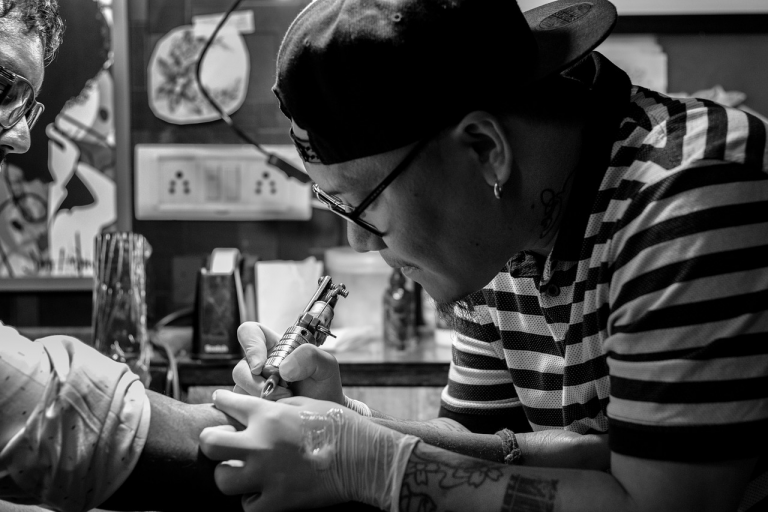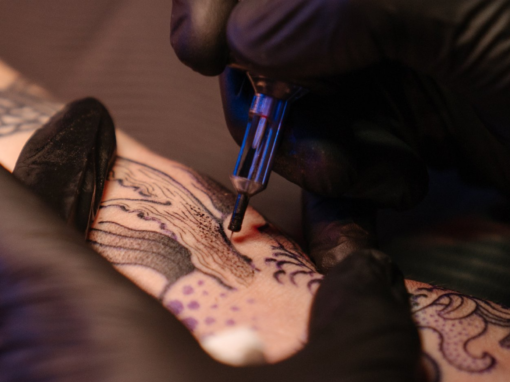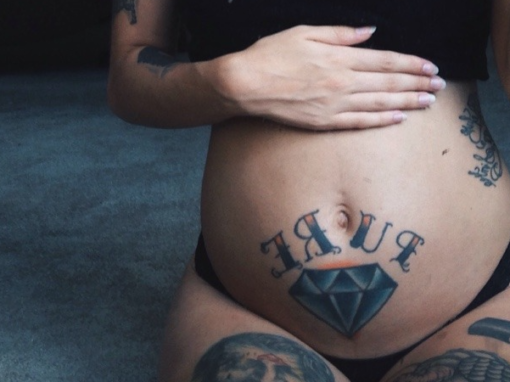If you are considering setting up a tattoo business, receiving the necessary insurance coverage is essential. Whether you are a tattoo shop manager or a self-employed tattoo artist, insurance can protect your endeavor from all sorts of unexpected and costly issues. Unfortunately, this is a rather complicated topic, and it is easy to get lost in the multitude of legal nuances. So, we decided to clarify what kind of insurance tattoo artists need.
We’ll start by discussing the importance of insurance for tattoo artists and whether you can run a business without it. Then, you’ll learn what types of insurance coverage tattoo shops need and how much each of them costs. On top of that, this article will provide quite a few definitions of crucial legal terms and resources that will help you navigate the complexities of entrepreneurship.
Is the Tattoo Artist’s Insurance Legally Required?
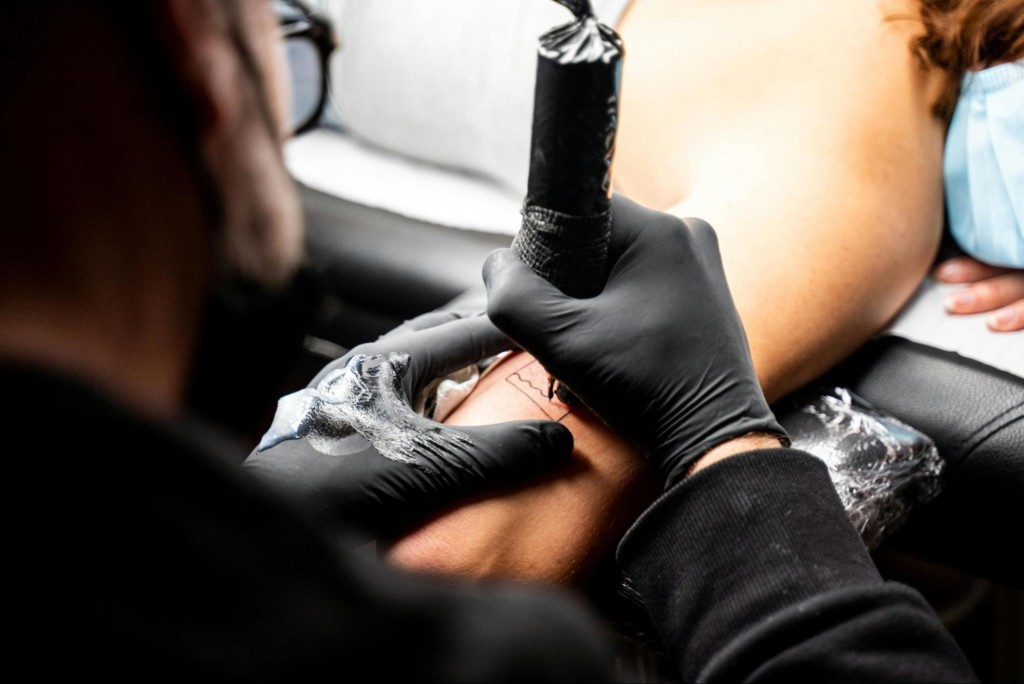
We will start by answering the first fundamental question you might have—”Can you run a tattoo shop without insurance?” Generally speaking, the answer is no, but the specifics usually depend on how the law treats the professionals (if any) who work with you.
Independent contractor
A person who provides services for clients but is not an employee is considered self-employed or an independent contractor. For example, an artist who rents a chair in a tattoo shop is an independent contractor since they have to pay their own taxes, purchase their own supplies, and manage their schedule independently of all other artists in the studio.
Employee
A person who works for an individual or an organization is considered an employee if the employer regulates how their work must be performed. This means that the employer establishes rules of work conduct, manages the tattoo artists’ payroll, chooses working hours, and handles the delivery of tattoo supplies, among other things.
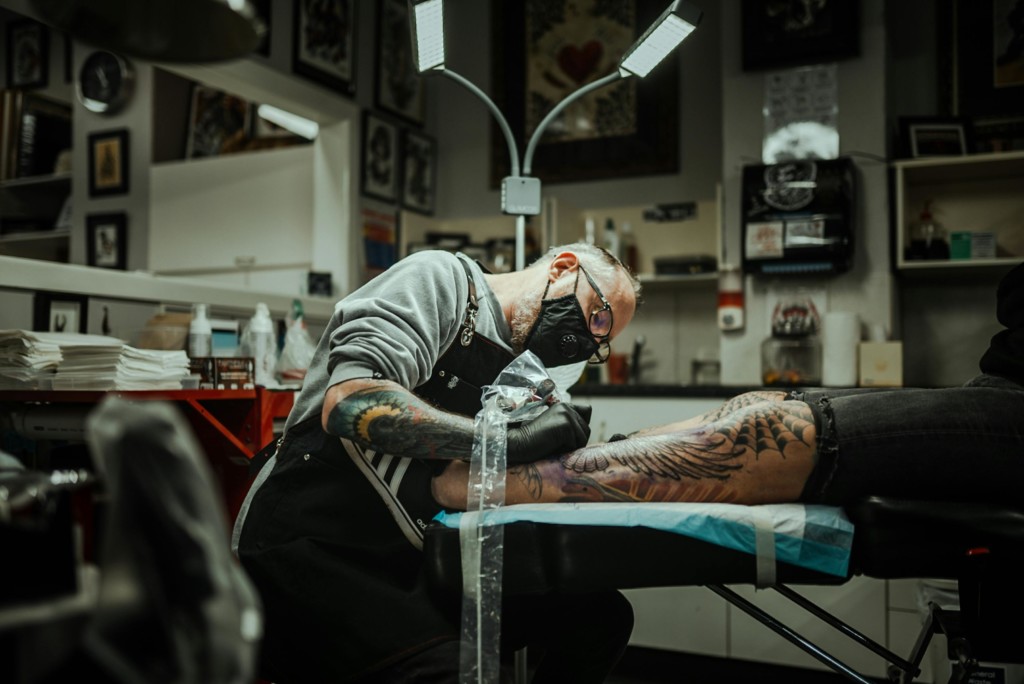
On the state law level, if tattoo artists in your parlor are considered employees, then, in most cases, you are legally required to have worker compensation insurance. Some states have softer regulations—for example, Alabama and Mississippi mandate worker compensation insurance only for businesses with more than 5 employees. Meanwhile, independent contractors are often exempt from such requirements, so if you work alone or rent out chairs in your tattoo shop, insurance may not be obligatory.
However, even if the state doesn’t require insurance for tattoo artists, your landlord might. Very often, general liability coverage is a part of the commercial lease agreement, meaning that insurance is needed to rent a space for a tattoo shop. With that said, we strongly recommend getting insurance coverage even if your situation allows you to run a business without it. Here are 3 main benefits that make tattoo artists’ insurance expenses worth it.
What Are the Benefits of Getting Tattoo Insurance?
Insurance doesn’t only tick an important box on the list of legal requirements to start a business but also provides you with a range of valuable benefits.
? Protection for your business
Insurance coverage safeguards your tattoo shop against financial risks that can be ruinous for a young business. Tattoo artist insurance can cover your legal expenses if you get a lawsuit from a customer who slipped on the floor of your studio. It can also protect you from losses caused by various force majeure situations, including natural disasters, theft, different kinds of property damage, and many other unpleasant events outside of your control.
? Protection for individual artists
The tattoo process involves a degree of risk. A client can have an allergic reaction, skin inflammation, or infection (although it is rare). If a client claims that the unsatisfying outcome was caused by your negligence, professional tattoo liability insurance will help you pay a legal bill.
? Peace of mind
Having tattoo insurance allows both business owners and individual artists to focus on their craft without constant worry about potential financial and legal complications. Based on our research and interviews with tattoo artists, the starting months of working in a tattoo shop are often quite hectic. In this sense, getting insurance protection early can alleviate a lot of stress.

What Types of Insurances Are Relevant to You?
Now, let us take a look at the several most common types of insurance for tattoo artists and break down what risks each type will protect you against.
General Liability
General liability (colloquially called “trips and falls”) insurance is a commonly requested policy for small businesses, including tattoo shops. Its purpose is to protect businesses from claims that occur as a result of normal business operations. The stereotypical scenario in which this policy applies is your tattoo clients tripping and injuring themselves while in your shop. But, of course, there can be other situations:
✅ If a client or any third party gets a body injury as a result of your business activity, general liability insurance can cover medical expenses and legal fees.
✅ If your business operations cause property damage, insurance can cover the cost of repairs or replacements. This is exactly why many landlords require you to get general liability insurance when signing the commercial lease agreement.
✅ General liability insurance can protect your business in cases of copyright infringement. This kind of protection can help if you, for example, accidentally use copyrighted content in your marketing campaign.

Sometimes, knowing what is not covered by insurance is even more important. This is especially true for general liability insurance, as many tattoo shop owners mistakenly believe that its coverage can substitute professional tattoo artist insurance.
❌ Professional errors are not covered by general liability insurance. This means that you will not receive any protection if the lawsuit is related to the process of tattooing. For example, if the client claims that their tattoo hurts due to your negligence, your legal defense will not be covered by the insurance company.
❌ Damages due to theft or burglary won’t get reimbursed. To protect yourself against such potentially devastating issues, you should look into commercial property insurance.
❌ Employees’ injuries are also not covered by this policy. As we mentioned, general liability insurance covers bodily injuries of third parties, but not your own employees.
Overall, general liability is an essential part of your insurance protection, and we certainly recommend getting it. Yet, this is not a panacea, and you need to complement it with other policies to ensure you get the best tattoo insurance coverage.

Professional Liability
Professional tattoo liability insurance is a specialized type of coverage that can protect tattoo artists against claims of negligence during professional duty. This type of insurance can be helpful for tattoo artists due to the nature of their work, which involves permanent body art and carries inherent risks. Your legal expenses will get reimbursed if:
✅ Your client is dissatisfied with the quality of the tattoo or alleges that the artist made a mistake, such as a misspelled word or incorrect design.
✅ Your client has an adverse reaction to a tattoo, such as inflammation or allergy.
✅ In case you tattooed a client outside your shop (i.e., at a fair or festival) and they claim your negligence.
Getting professional tattoo liability insurance is usually a matter of choice. It can provide some extra peace of mind, however, the ultimate decision depends on the tattoo shop’s budget and the cost of the tattoo artist insurance you get quoted.

Worker Compensation
Worker compensation insurance (often referred to as work comp) is a type of insurance that provides benefits to employees who suffer job-related injuries or illnesses. As we discussed previously, this policy is legally required by most US states. Typically, work comp policy provides:
✅ Coverage of the cost of medical treatment required due to a work-related injury or illness.
✅ Partial or full wage replacement if an employee is unable to work due to their injury or illness.
The most important exceptions to the work comp insurance include events that happen while driving from and to the workplace (those are considered unrelated to the job duties) and intentional acts (for example, an injury due to intoxication will not get tattoo insurance coverage).
In most cases, worker compensation insurance is mandatory for a tattoo shop. But even if there is no legal requirement, you should still consider purchasing this policy, as it provides valuable protections that ensure the financial stability and continuity of your business operations.

Commercial Property
Commercial property insurance is concerned with the physical assets your tattoo shop owns. This policy can protect you from the risks that are not covered under the general liability insurance:
✅ Damage to the property you own, including damage that occurred due to circumstances outside your control, like extreme weather or a natural disaster.
✅ Damage to business belongings, including tattooing equipment, furniture, and other types of inventory.
✅ Financial losses due to theft or acts of vandalism.
✅ Sometimes, such policies can also cover lost income due to the business interruption.
One essential detail business owners need to be aware of is that commercial property insurance does not extend to the vehicles owned by the business. To protect yourself against transport-related risks, you should consider commercial auto insurance.
In principle, commercial property tattoo insurance is not always mandatory. However, we recommend considering purchasing this policy as it can safeguard tattoo shop owners from devastating losses caused by unpredictable events or a malevolent third party.
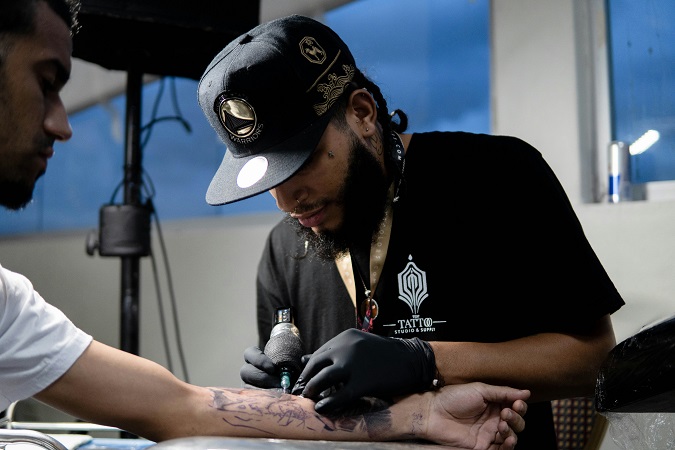
Business Owner’s Policy
A business owner’s policy, or BOP, is an insurance package that combines several types of insurance for tattoo artists in a single bundle. The purpose of BOP is to simplify the process of getting comprehensive coverage and lower the cost of tattoo insurance. In many cases, it is indeed a great deal for small business owners, but it still doesn’t cover all the risks:
✅ Protects against claims of bodily injury, property damage, and copyright infringement claims that could arise from your business operations (similar to general liability insurance).
✅ Covers the physical assets of your business, such as your building, equipment, inventory, and furnishings, and risks like fire, theft, or vandalism (similar to commercial property tattoo insurance).
✅ Provides compensation for lost income and operating expenses if your business operations are disrupted due to a covered event.
However, BOP usually doesn’t provide protections analogous to those of work comp insurance and professional tattoo liability insurance.

Interim Conclusion
Usually, general liability and worker compensation insurance are mandatory for tattoo shop owners, while other policies on the list are not. With that said, having extra protection will provide peace of mind and prevent you from going out of business due to an unfortunate event you could not foresee. If your budget allows spending a bit of extra cash on more comprehensive insurance—you should probably go for it.
Remember that in the insurance industry, wording matters a lot. Never hesitate to ask your insurance provider for examples of scenarios that will and will not be covered by the policy you buy. Also, remember that different states can interpret legal terms in slightly different ways, which is why a consultation with a lawyer can be extremely valuable.
How Much Does the Tattoo Insurance Cost Your Business?
First of all, we must say that the cost of insurance for tattoo artists depends on multiple factors, including:
- – Number of employees
- – Payroll size
- – Tattoo shop location
- – Services tattoo shop provides
- – History of past claims
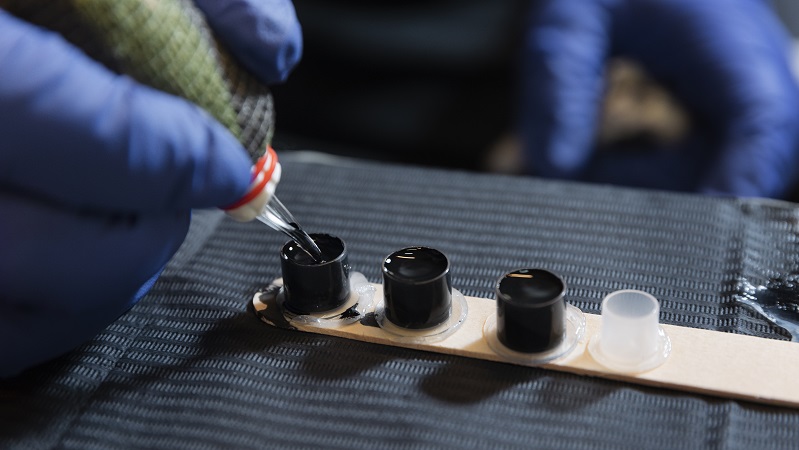
The only way to learn the exact cost of tattoo insurance is by getting a quote from an insurance company. Despite that, we researched the median prices of different types of insurance:
| Type of insurance | Median monthly cost |
| General liability insurance | $42 |
| Professional tattoo liability insurance | $61 |
| Worker compensation insurance | $45 |
| Commercial property insurance | $67 |
| Business owner’s policy | $57 |
Summary
Tattoo artist insurance is not just a common legal requirement, but a set of tools that provide financial protection and peace of mind for business owners and individual artists. We discussed the most common types of tattoo insurance, including general liability, professional liability, worker compensation, commercial property, and business owner’s policy. Here, you can also find the data on the median tattoo insurance costs that will help you plan your business expenses.
Thank you for reading! We hope that this article will help find the best tattoo insurance coverage for your business.
FAQ
❓ Do Tattoo Artists Need Insurance?
Yes, in most cases, worker compensation and general liability tattoo insurance will be legally required by the state or landlord who owns the property.
? How Much Does Tattoo Artist Insurance Cost?
Insurance costs for small businesses depend on the type of the coverage and multiple other factors. Median costs for small businesses usually range from $42 (general liability) to $67 (commercial property) per month.
? What Type of Tattoo Artist Insurance Should You Get?
In most scenarios, worker compensation and general liability insurance are mandatory. However, if your budget allows it, we recommend professional liability tattoo insurance and commercial property insurance, too.
? Why Tattoo Artists Need Professional Tattoo Insurance?
Professional liability tattoo insurance covers any claims related to the act of tattooing. If your client claims your negligence, this type of insurance will cover your legal defense.

